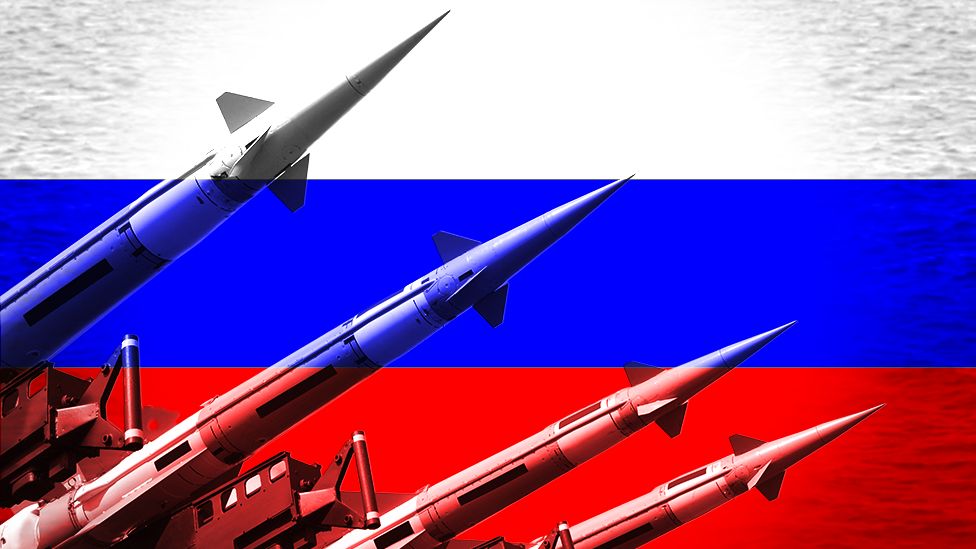Ukraine round-up: Nobel peace prize and Putin's fading dreams
- Published
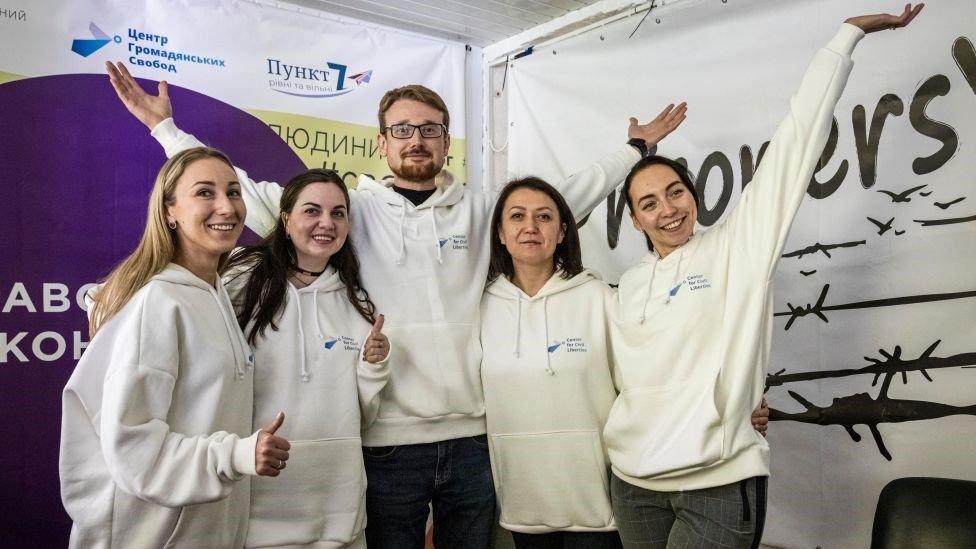
Staff at the Centre for Civil Liberties celebrate winning the Nobel Peace Prize
In what has been viewed by many as a rebuke of Russian President Vladimir Putin, a Belarusian activist and two groups from Russia and Ukraine have been given the Nobel Peace Prize for championing human rights and democracy.
The Nobel Committee said the prize was "not awarded against anyone".
Belarusian Ales Bialiatsky, who is being held in prison without trial, is the founder of a human rights centre which supports people jailed for protesting against the country's authorities. We have this profile of him.
Memorial is a Russian human rights group, disbanded last year by authorities.
And the Ukrainian Centre for Civil Liberties (CCL) documents persecution by Russian forces in Ukraine.

Exiled Russian journalists
On a similar theme, BBC Monitoring's Jennifer Monaghan has spoken to journalists who fled Russia after facing threats over their reporting on Ukraine.
Almost all of Russia's leading independent media outlets are now based abroad.
The exiled Russian journalists challenging Kremlin censorship

Putin's dream of Russian victory slipping away

Even as Russia's president signed his illegal annexation treaties in the Kremlin, Ukrainian forces were advancing inside the areas he had just seized.
Hundreds of thousands of men have been fleeing Russia rather than be drafted to fight in an expanding war.
And things are going so badly on the battlefield that Mr Putin and his loyalists are now reframing what they once claimed was the "de-Nazification" of Ukraine and the protection of Russian speakers as an existential fight against the entire "collective" West.
That is the truth and none of it is on Russia's side.

Zelensky: Russians being prepared for nuclear war
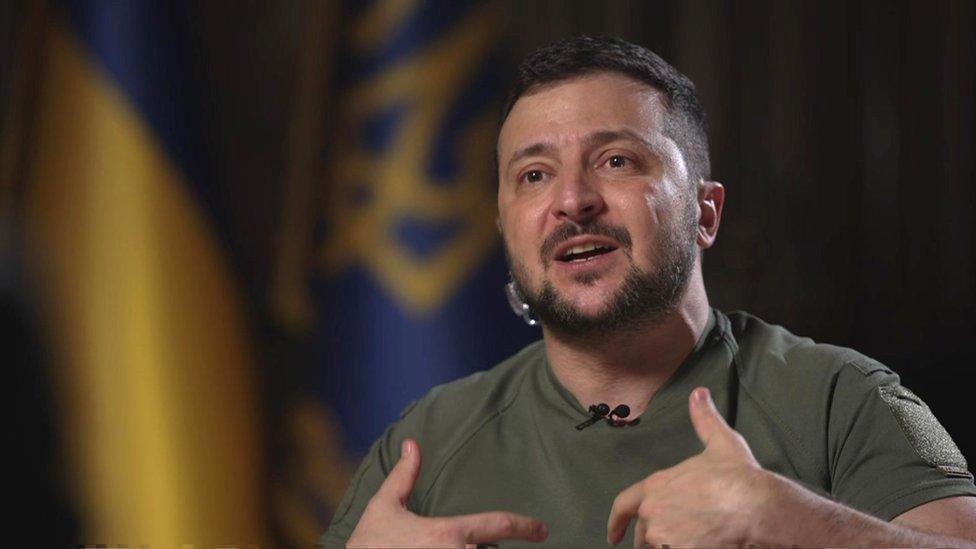
Following the latest series of warnings and threats over nuclear war, Ukrainian President Volodymyr Zelensky says Russian officials have begun to "prepare their society" for the possible use of nuclear weapons, but he adds that he does not believe Russia is ready to use them.
In an interview in Kyiv with the BBC's John Simpson and Hugo Bachega, he said: "They are not ready to do it, to use it. But they begin to communicate. They don't know whether they'll use or not use it."
"I think it's dangerous to even speak about it," he added.
He also called for further sanctions on Russia.

Europe's energy crisis
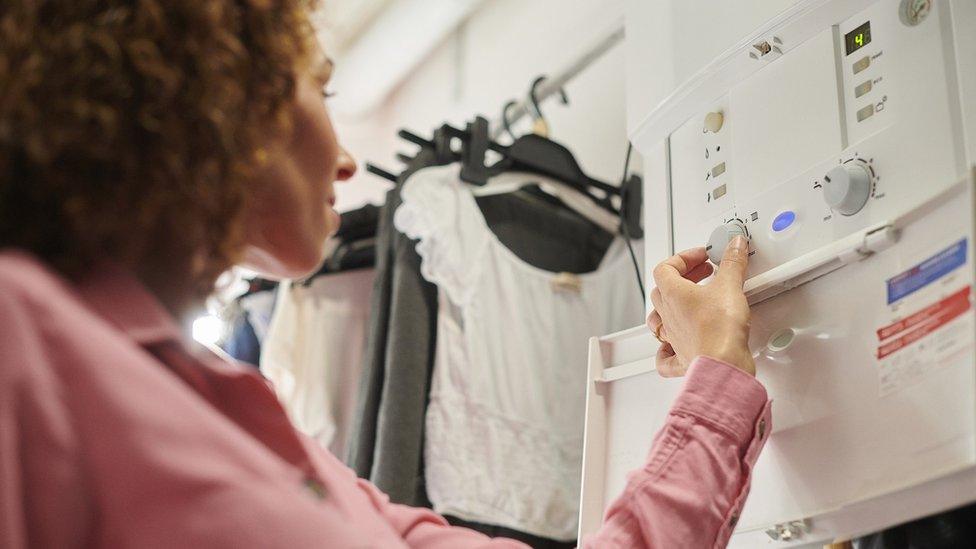
Europe is continuing to prepare for an energy crisis in winter over a drop in Russian gas supplies since the invasion of Ukraine.
Italy has become the latest country to impose restrictions on the use of heat.
People will be told to turn their heating down by one degree, and off for an extra hour a day, while the heating in public buildings will also be reduced.
Meanwhile in the UK, the prime minister's office has blocked a plan to encourage household energy-saving.

Putin's unusual birthday present
We're not sure if a tractor was Mr Putin's dream gift when he turned 70 on Friday, but that didn't stop his Belarusian ally, Alexander Lukashenko, whose country boasts a tractor works.
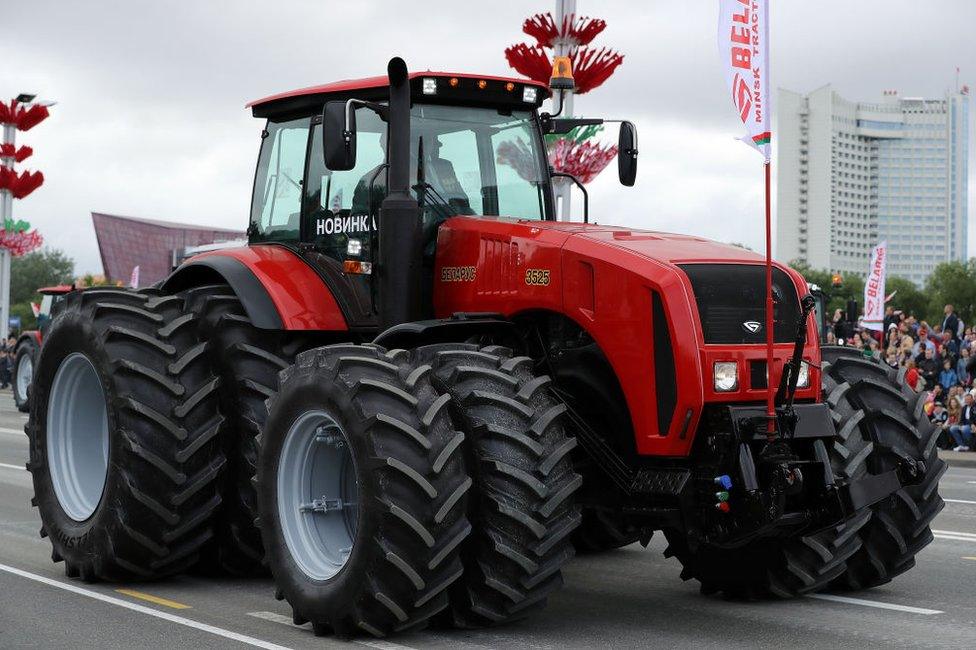
Mr Lukashenko was visiting his fellow strongman's home city, St Petersburg, for talks.
Some social media users noted the irony of such a gift: the humble tractor became an early symbol of Ukrainian resistance to the Russian invasion after farmers were seen towing away abandoned military vehicles.
Related topics
- Published7 October 2022
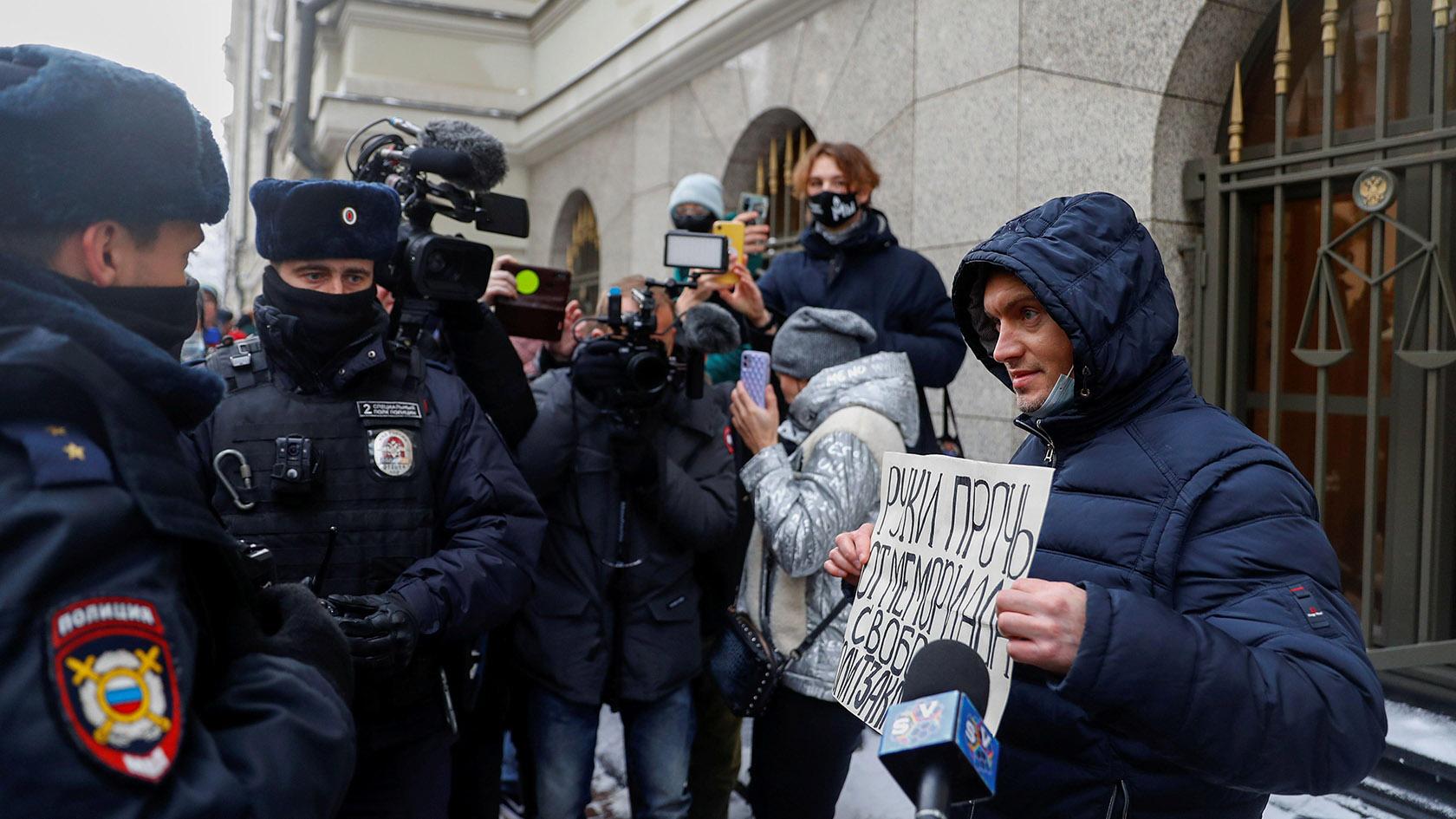
- Published21 December 2022
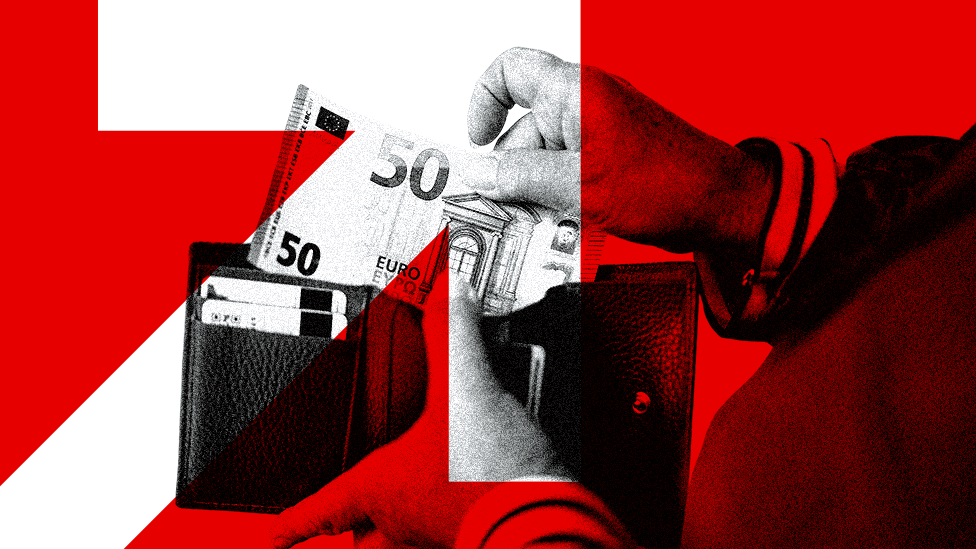
- Published7 October 2022
